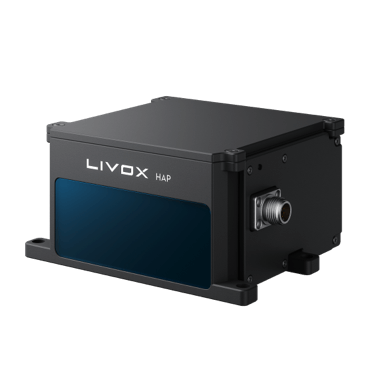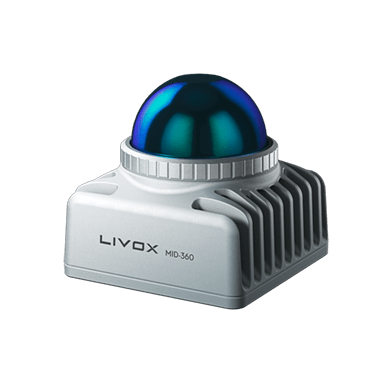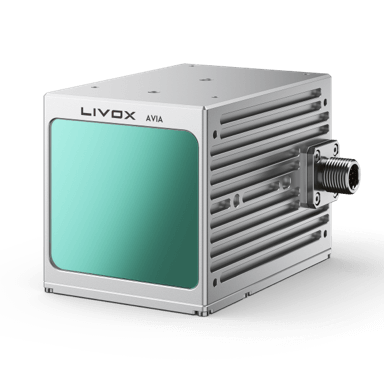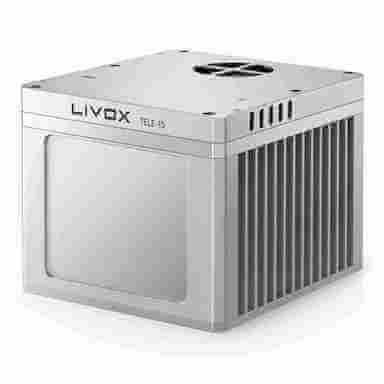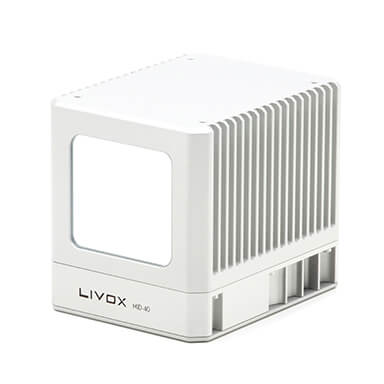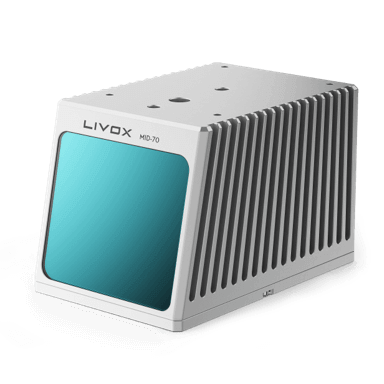January 6, 2020 – Livox Technology Company (Livox) is revolutionizing the lidar industry by introducing two high-performance, mass produced lidar sensors, the Horizon and Tele-15, which feature a groundbreaking scanning method that offers improved sensing performance at a fraction of the cost of traditional lidar units. By making high quality lidar technology far more easy and affordable to integrate into products and applications, Livox will transform innovations in L3/L4 autonomous driving, smart cities, mapping, mobile robotics and more.
“The growth potential of the lidar industry has been hindered for too long by ultra-high costs and slow manufacturing rates,” said Henri Deng, Global Marketing Director at Livox. “Livox seeks to change this by providing access to high quality lidar systems that are easily integrated into a wide array of different use applications. Through our technology, we hope to be the catalyst for the rapid adoption of lidar in the quickly growing industries of autonomous driving, mobile robotics, mapping, surveying and more.”
High-Performance And Compact Design
The environment scanned by a Livox sensor increases with longer integration time as the laser explores new spaces within its Field of View (or FOV). As seen in the image below, a Livox Mid-40 or Mid-100 sensor generates a unique flower-like scanning pattern to create a 3D image of the surrounding environment. Image fidelity increases rapidly over time. In comparison, conventional lidar sensors use horizontal linear scanning methods that run the risk of blind spots, causing some objects in their FOV to remain undetected regardless of how long the scan lasts. The unique non-repetitive scanning method of the Livox lidar sensors enables nearly 100% FOV coverage with longer integration time which does not exist in any market alternatives today at this cost.

Livox’ unique non-repetitive scanning patterns vs. a traditional mechanical linear scanning pattern
Designed For L3/L4 Autonomous Driving Applications
The Horizon and Tele-15 are high-performance lidar sensors designed for L3/L4 autonomous driving applications. The Horizon has a detection range of up to 260 meters with a horizontal FOV (HFOV) of 81.7° which can cover 4 road lanes at a distance of 10 meters and its FOV coverage ratio is comparable with a 64-line mechanical lidar at the integration time of 0.1 sec. Using just five Horizon units enable full 360° coverage with only 5% of a cost of a 64-line mechanical lidar, which makes Livox stand out when customers want to scale up their robo-taxi fleets to hundreds or thousands of cars or if OEM and Tier-1 want to consider lidar for their future models with L3/L4 autonomous driving functions.

Horizon Point Cloud Sample of Crossroads with a pedestrian crossing the street
Made for advanced long-distance detection, the Livox Tele-15 offers the compact size, high-precision, and durability while vastly extending the real-time mapping range. The Tele-15 can scan 99.8% area within its 15° circular FOV at 0.1s which outperforms 128-line mechanical lidar sensors currently available on the market. The Tele-15 can successfully detect an object up to 500 meters away, which is hardly achievable by human eyes or other sensors at this cost.
As a result, Tele-15’s groundbreaking performance allows autonomous driving systems to detect remote objects well in advance, providing more reaction time even at high speeds.

Tele-15 Point Cloud Sample of a Remote Building 497 meters away

LiDAR Comparison: Pedestrians at 10 meters

FOV Coverage Ratio Performance of Mid-40, Tele-15 and Horizon compared with traditional Multi-line Mechanical LiDAR Sensors
"We've been testing and using a great number of lidar sensors available on the market and we are excited to find one that offers a good combination of performance, realibity and cost," said Jianxiong Xiao also known as Professor X, the CEO and Founder of AutoX. “We are excited to see Livox is redefining the lidar market with their innovative technology and I am glad to announce that AutoX will be using Horizon and Tele-15 in our new robotaxi fleets in 2020."
Traditional mechanical lidar is usually mounted on top of a vehicle which may be impacted by wind resistance and issues related to trafficability when in environments with low height conditions. Livox has optimized the hardware and mechanical design so that a compact body of Horizon and Tele-15 sensors enable customers to easily embed units into existing and future vehicle designs.
Reliable And Safe
Additionaly, mass production capability enables Livox to conduct intensive reliability tests. Over 2,900 units of Livox lidar sensors have been individually and thoroughly tested for use in various environmental conditions. Each unit has a false alarm rate of less than 1/10000th, even in 100 klx sunlight. Livox meets automotive standards as Horizon and Tele-15 can operate in temperatures between -40˚F to 185˚F (-40˚C to 85˚C). Additionally, the entire sensor of both Horizon and Tele-15 is also IP67 rated.
Traditional mechanical lidars have a number of rotating electronic components in order to achieve a 360° coverage, which may increase the failure rate. The unique product design of Livox lidars has no electronical moving parts beside its rotating prism(s). This makes Livox products more reliable, with significantly longer working hours compared to the current lidar solutions on the market.
Each sensor’s laser power meets the requirements for a 905nm Class 1 laser product to IEC 60825-1(2014) and is safe for human eyes.
Low Cost and High Quality Mass Production
It is also through its novel optoelectronic design that Livox is able to provide a comparable solution at a fraction of the price of current market alternatives. The innovative design of the sensor requires fewer high-cost components and with the use of its patented DL-Pack technology, Livox sensors are calibrated automatically, enabling better product yield while requiring fewer specialized technical labor hours. This allows Livox to return the cost benefits to its customers and broaden overall use applications as this technology becomes more prevalent.
Livox SDK
Livox SDK offers a range of essential tools for developers who wish to create unique applications and algorithms. The Livox SDK supports various operating systems such as Linux, Windows, ROS, and development languages like C, C++, and Python, enabling the use of Livox LiDAR sensors on different platforms. Livox also provides common algorithms such as external calibration and SLAM to help users get started quickly.
“At Refraction AI, our mission is to provide a cost-efficient autonomous last mile delivery service for our customers which is why both the high performance and the accessible cost of lidar are very important considerations for us,” said Matthew Johnson-Roberson, Co-founder of Refraction AI. “We’ve been using Livox’s Mid-40 LiDAR sensors for several months on our REV-1 and are satisfied with the results. In fact, we are about to scale the fleet up with Mid-40s which is why I am happy to see Livox continuously contributing to the industry by offering more affordable but high-performance lidar sensors to start-ups like us”.
Price and Availability
Livox Horizon retails for $999 USD, and Tele-15 will retail for $1,499. For small quantities Livox sensors are available for purchase through the DJI online store at store.dji.com. Horizon will be available starting January 7, 2020 and Tele-15 is will be available in Q2 2020.
The Livox Horizon and Tele-15 sensors can also be purchased at EXW pricing of $800 USD and $1,200 USD, accordingly, at https://www.livoxtech.com/contact.
For large orders and customization requests, please contact the Livox Sales Team at https://www.livoxtech.com/contact.
Livox at CES 2020
Visit the Livox booth at CES 2020 to learn more about its innovative solutions and witness live applications and demos onsite. The booth is located at the Westgate, Booth Number 833.
International companies who are already deploying Livox Technology include AutoX focusing on Robo-Taxis, CiDi focusing on autonomous trucking, Refraction.ai and GS-Robot focusing on robotics, and Green Valley focusing on aerial, terrestrial, and mobile laser scanning technologies. All companies will be providing workshops and hands-on sessions during CES at Livox’s booth from Jan 8th – 9th.
For additional information about Livox’ activities at CES, please contact:

